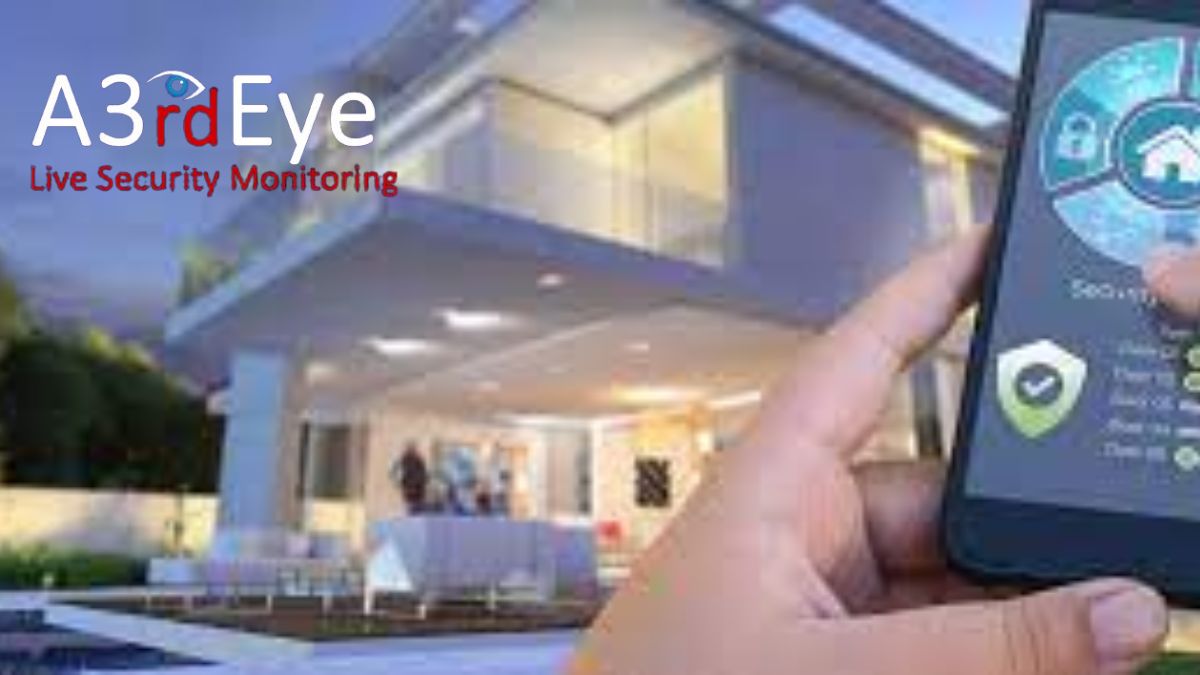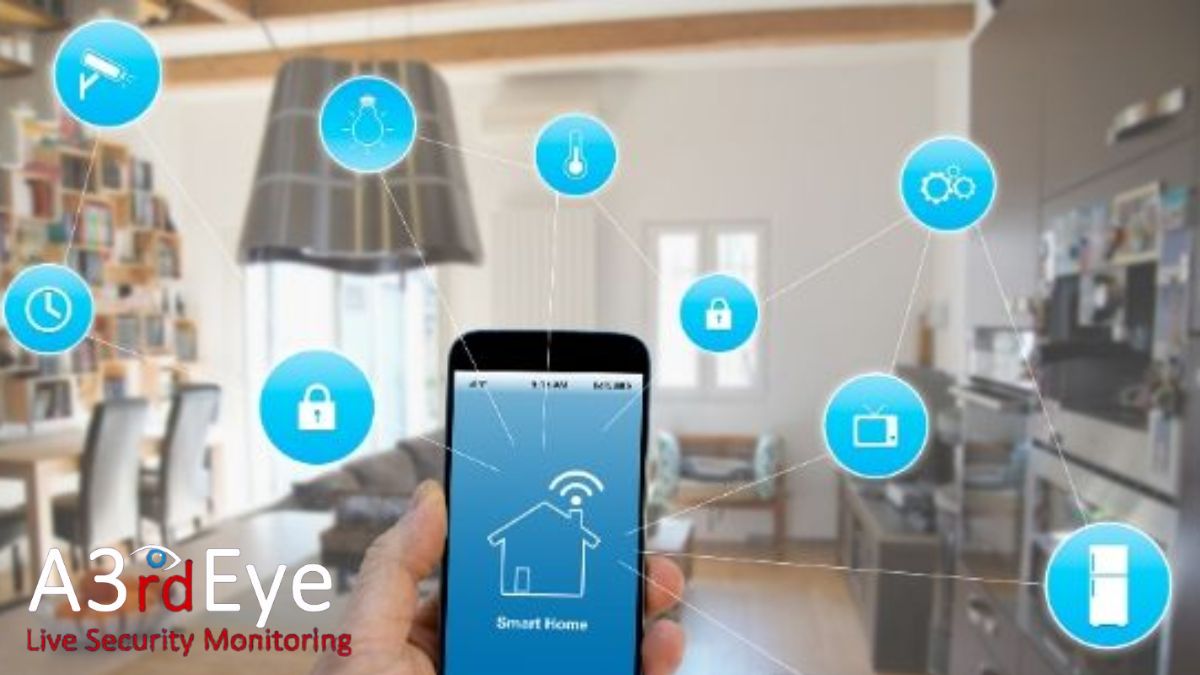
American Home Security: and Safety
American Home Security and Safety In today’s hectic environment, protecting our houses from danger has risen to the forefront of our minds. More and more American homeowners are spending money on high-quality home security systems to keep their families and possessions safe. This article delves into the topic of home security in the United States, discussing the various systems available, what to look for in a good system, how to take extra precautions, and where the industry stands heading into the future.
The Value of Safeguarding Your House
When it comes to protecting your home from intruders like burglars and vandals, home security is essential. Knowing that their home is safe and secure thanks to a dependable security system is reassuring enough to prevent would-be intruders. Technology has allowed for the creation of home security systems that go above and beyond the scope of traditional alarms by integrating things like surveillance cameras, motion detectors, and remote monitoring.
Recognizing the State of Home Security in the United States
The home security industry in the United States is large and varied, providing plenty of solutions to suit a wide range of requirements and price points. There is a wide variety of home security systems available to homeowners today. Options include monitored and unmonitored alarm systems, video surveillance systems, and smart home security systems. Different varieties offer varying degrees of advantages and customization options to handle a wide range of security issues.
Standardized Home Safety Measures
Systematic Alarm Monitoring
Central monitoring stations provide professional oversight of monitored alarm systems. When an alarm is activated, the system communicates with a central monitoring facility, which notifies the proper authorities. These technologies provide effective, around-the-clock security, and shine brightest in times of crisis.
Unattended Security Systems
To warn residents and passersby of a break-in, unmonitored alarm systems use loud noises. Even though these systems don’t have expert monitoring, they can nevertheless serve as a deterrent and add an extra layer of protection.
Cameras for Keeping an Eye on Things
Cameras installed around the premises serve as the eyes of a video surveillance system, recording and monitoring any and all activity. These devices are essential for identifying offenders and bolstering security since they can record and save video evidence.
High-Tech Home Safety Systems
When it comes to protecting your house, nothing beats a smart home security system, which leverages the best of both automation and technology. Homeowners can monitor their properties, get instant notifications, and manage other house functions (such as the lights and locks) remotely using apps on their smartphones to handle these systems.
What to Look for in a Home Security System
There are a few things to keep in mind while deciding on a home security system:
Budget
Homeowners should set a budget that is reasonable given their financial situation. Installation expenses and ongoing monitoring fees for various security systems can add up quickly. Finding a happy medium between cost and desired characteristics is essential.
Size and Design of Houses
A home’s size and layout are two factors that should be considered when choosing a security system. For larger houses, a network of cameras and sensors may be necessary, while a simpler system may suffice for smaller dwellings.
Compatibility with Pre Existing Infrastructure
It is crucial to verify compatibility and integration with the chosen home security system if the homeowners already have other smart devices or home automation systems in place. Because of this, operations can be coordinated and streamlined.
User-Friendliness
It’s important to think about how simple and accessible the security system is. The settings and interface of a home security system should be as straightforward and easy to use as possible.
Installing It Yourself vs. Hiring a Professional
DIYers and experts alike both have the option of installing home security systems. Installing a system oneself allows both customization and cost savings for the homeowner. However, expert installation guarantees the system is set up correctly, increasing its efficiency.
Take Extra Safety Precautions
Homeowners can further increase the safety of their property by taking the following steps in addition to installing a security system:
Lockable Windows and Doors
For enhanced security, install reinforced doors and windows with thick frames and top-notch locks. Laminated or security glass is another strong deterrent.
Lighting Activated by Motion
By shining light into otherwise shadowy regions, motion sensor lights can help prevent would-be attackers. This raises the likelihood of being spotted by others and also warns homeowners to any prospective action.
Locations for Surveillance Cameras
Security cameras need to be strategically placed for maximum coverage. They need to be stationed in strategic locations to monitor access points, weak spots, and busy thoroughfares. Cameras that are obvious to onlookers can dissuade criminal activity, while covert ones can collect evidence without drawing attention to themselves.
Automation and Tracking of Your Home From Anywhere
When a home’s security system is combined with home automation capabilities, the property can be monitored and controlled from anywhere. Adjusting the lighting, locking the doors, and seeing live video feeds are all examples of this.
8 Ways to Make Your House Safer
The following advice, in addition to installing a solid home security system and taking other precautions, can help make a house safer for its inhabitants:
Upkeep and Improvements on a Schedule
It is crucial to regularly update and repair the security system. Maintaining a high level of performance requires routine testing of alarms, battery replacement, and software/firmware updates.
Giving the Appearance of Occupancy
To prevent break-ins while the owners are away, it’s a good idea to make it look like someone is home. The use of automated light switches, mail collection services, and smart home technology all allow for this goal to be attained.
Institutionalizing Effective Neighbor Watch
Having a robust neighborhood watch program and talking to your neighbors often might make you feel safer in your own neighborhood. Residents may keep an eye out for one another, report any suspicious activities, and take preventative actions to keep the area secure.
Home Security in the United States: What’s Next?
The future of home security in the United States is bright, thanks to rapidly developing technologies. When AI and machine learning algorithms are integrated into security systems, they can become smarter and more proactive in spotting dangers. In order to improve the efficiency of home security systems, cutting-edge facial recognition, behavior analysis, and predictive analytics have been implemented.
The proliferation of IoT devices will also impact the growth of home safety systems. The interoperability of the devices will make automation and real-time tracking much simpler. As home security systems become more accessible via voice commands, smartphone apps, and smart assistants, homeowners will have more power and insight into their own safety.
Wrapping Up
In order to keep their homes and families safe, American citizens must invest in a solid home security system. Individuals can find a security system that fits their requirements and budget from among the many available solutions. Homeowners can make well-informed choices when they think about issues including cost, size of home, ease of integration, and user friendliness.
Additional measures, such as reinforced doors and windows, motion sensor lights, and home automation, supplement the security system and increase its effectiveness. In addition to routine upkeep and giving the impression of occupancy, encouraging a vigilant neighborhood watch can help keep residents secure.
Artificial intelligence, machine learning, and the Internet of Things will play crucial roles in enhancing the efficiency and ease of home security systems in the future of American homes.
Can I do the home security system installation myself?
Many home security systems are indeed meant to be set up by the homeowner. If you’d rather have an expert set it up for you, that option is available as well.
Approximately how much might one expect to spend on a home security system?
A home security system’s price might change significantly based on things including the system’s functionality and level of monitoring. Prices for entry-level systems often fall in the $200-$500 range, while those for more advanced ones might exceed $1,000.
how dependable are wireless security systems?
The installation of a wireless security system might be more fluid and convenient. To send information and signals, they rely on wireless communication protocols like Wi-Fi and cellular networks.
Does my home security system allow for remote monitoring?
It’s true that many up-to-date home security systems provide online or mobile app interfaces for remote monitoring. This allows homeowners to view live feeds from their cameras, set off alarms, and manage other aspects of the system from any location.
If my alarm goes off by accident, what should I do?
If your alarm goes off by accident, use the code or key fob to turn it off right away. Get in touch with your security company if you need to report a false alert and prevent a costly unneeded response.

American Home Security and Safety

